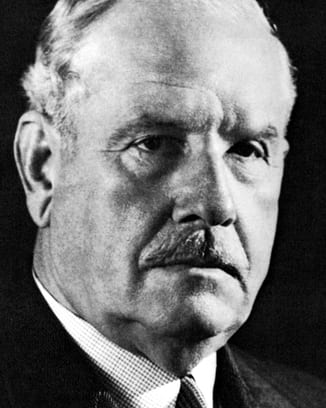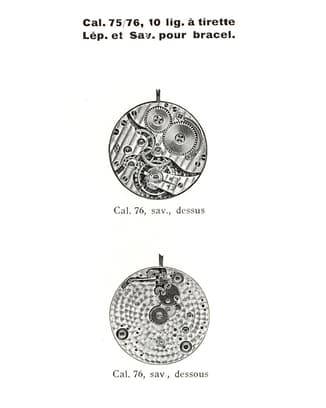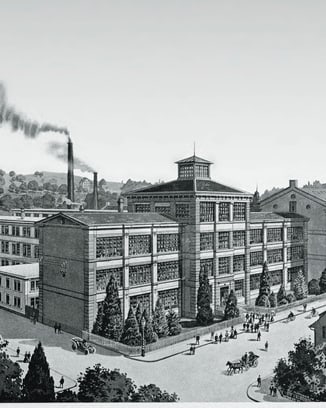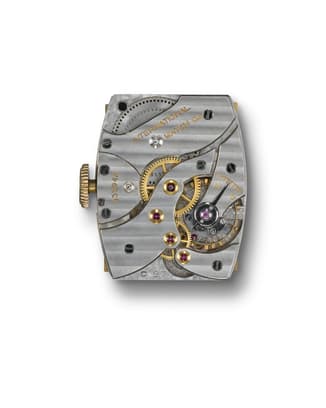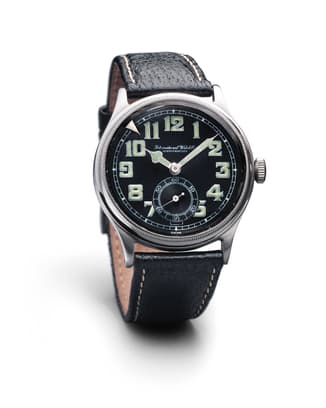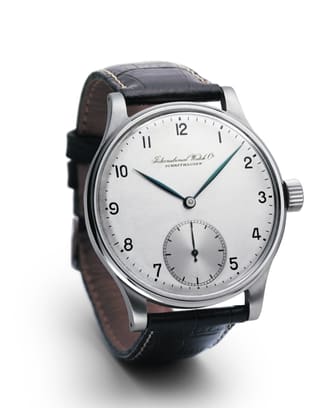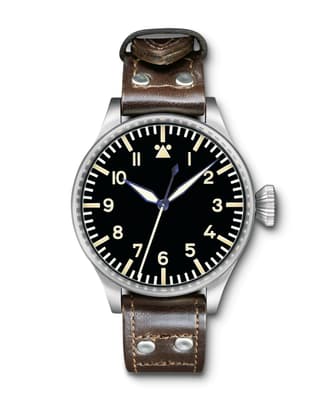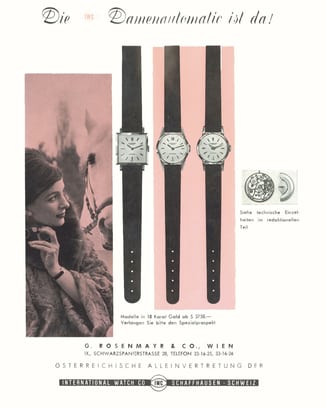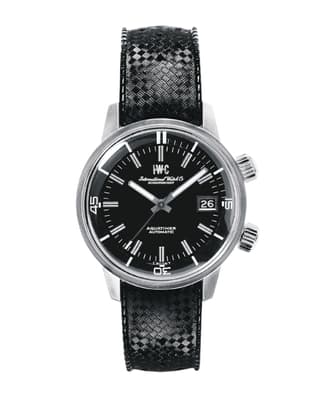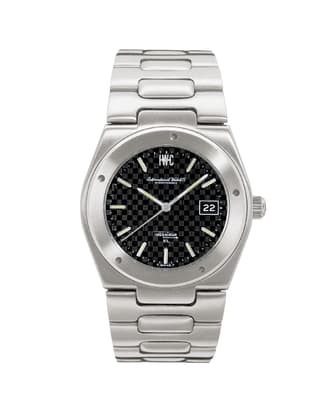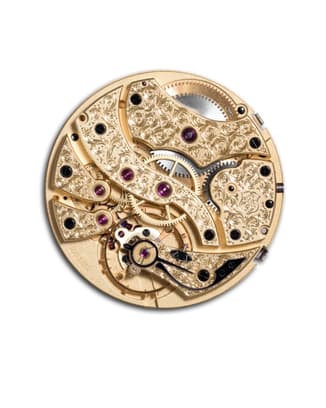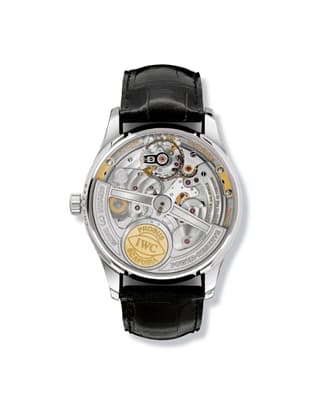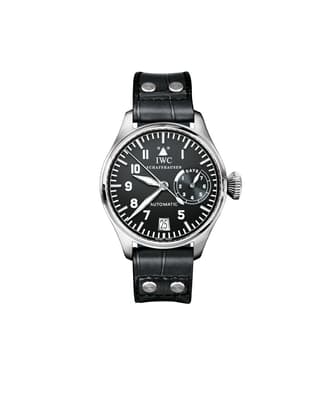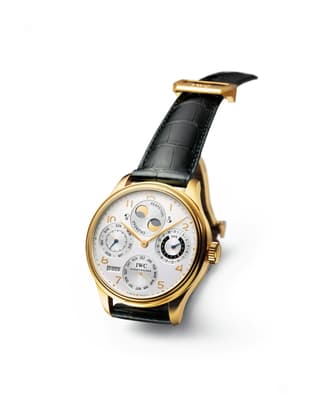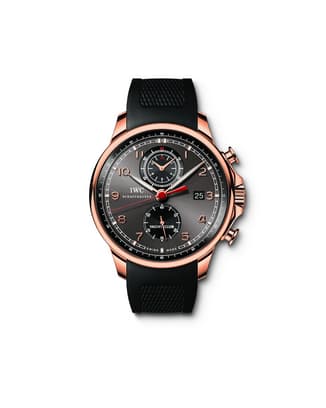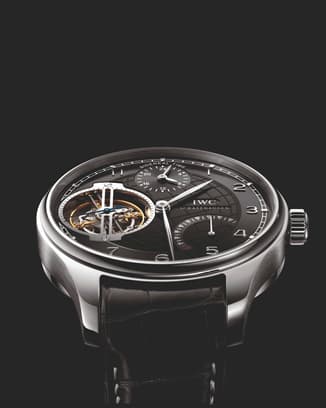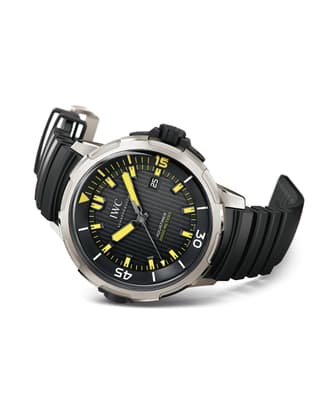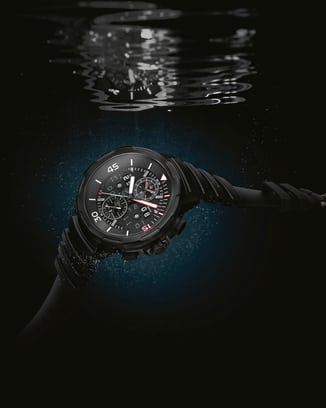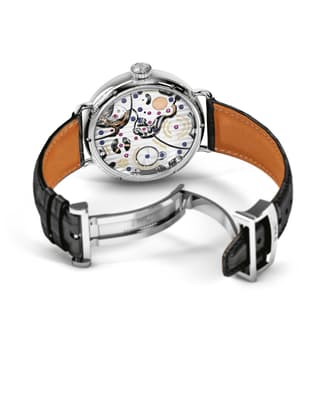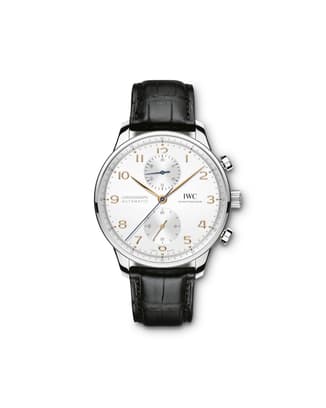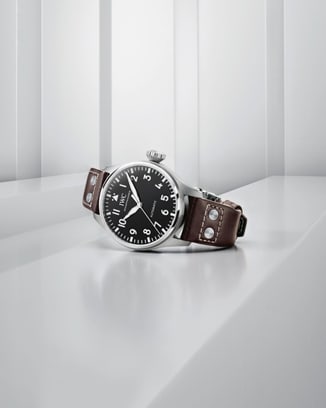Made at IWC
IWC Schaffhausen History
A chronology of craftsmanship
Roaring masses of water plunge over the gigantic rocks that are the world-famous Rhine Falls. A few kilometres upstream, in Schaffhausen, the Rhine glides at a more leisurely pace past the workshop windows at IWC. Here, more than 150 years ago, a company began a story that is still being written today.
The Early Years
At the tender age of 27, American engineer and watchmaker Florentine Ariosto Jones had been deputy director and manager with the E. Howard Watch and Clock Co. in Boston, then a leading American watchmaker. At a time when most young men were trying their luck in the west, Jones went in the opposite direction. True to his adventurous pioneering spirit, he planned to combine the outstanding craftsmanship of the Swiss with modern engineering technology from overseas. Unfortunately, his business plan met with unconcealed scepticism from the skilled workers in the Geneva region and the remote valleys of western Switzerland.
1868 - 1903
The Ernst Jakob Homberger era
Following the death of Johannes Rauschenbach-Schenk, Schaffhausen industrialist Ernst Jakob Homberger takes over the company. This era sees the birth of two watch families which are still true icons to this day. The first “Spezialuhr für Flieger“ establishes the tradition of producing Pilot’s Watches in Schaffhausen, which, thanks to their unmistakable design, are still popular across the world today. As Portuguese importers order a series of large wristwatches with high-precision pocket watch calibres, the first Portugieser model leaves IWC's workshops.
1905 - 1940
Albert Pellaton Joins IWC
The post-war years are characterized by the increased use of technology in people’s everyday lives. More and more appliances create magnetic fields which can negatively impact the accuracy of mechanical watches. It is during this time that Albert Pellaton becomes Technical Director at IWC Schaffhausen. Among his inventions are the extremely accurate 89 calibre, or the soft-iron inner case, which protects watch movements against magnetic fields. He also develops a particularly efficient bidirectional pawl-winding system, which shoots to fame as the Pellaton winding system.
1944 - 1950
Hans Ernst Homberger takes over
In the same year that Hans Ernst Homberger takes over at IWC, the first Ingenieur is launched. Its simple round design has since returned and become a distinctive feature of this sporty and elegant watch family. A few years later, IWC launches the first Aquatimer, and with it writes the first chapter in a success story of diver's watches from Schaffhausen that continues to this day. The company also plays a key role in developing the first ever Swiss-made quartz movement “Beta 21” which premieres in the first Da Vinci with a distinctive hexagonal gold case.
1955 - 1977
The Vdo Adolf Schindling era
At the peak of the quartz crisis, IWC deliberately focuses on creating masterpieces of watchmaking art. With the world's first watch case made from titanium, IWC lays the foundation for its unparalleled expertise in the area of materials. In the mid-1980s, the perpetual calendar from Kurt Klaus makes its debut in the Da Vinci family. Following seven years of development, IWC launches its first Grande Complication, and reaches the pinnacle of haute horlogerie. To mark its 125th anniversary, IWC unveils what is then the world’s most complicated mechanical wristwatch: Il Destriero Scafusia.
1978 - 1995
The Richemont era
After IWC becomes a part of Richemont, the company continuously expands its six watch families with precision engineering and exclusive design. In the Portugieser line, a double moon display is added to the perpetual calendar, while this mechanism features a digital display for the date and month for the first time in the Da Vinci family. IWC introduces the external/internal rotating bezel for the Aquatimer and launches its first watch with a bronze case. The Annual Calendar complication shows the month, date and day in the format used in the U.S. – a tribute to the company’s American founder.
